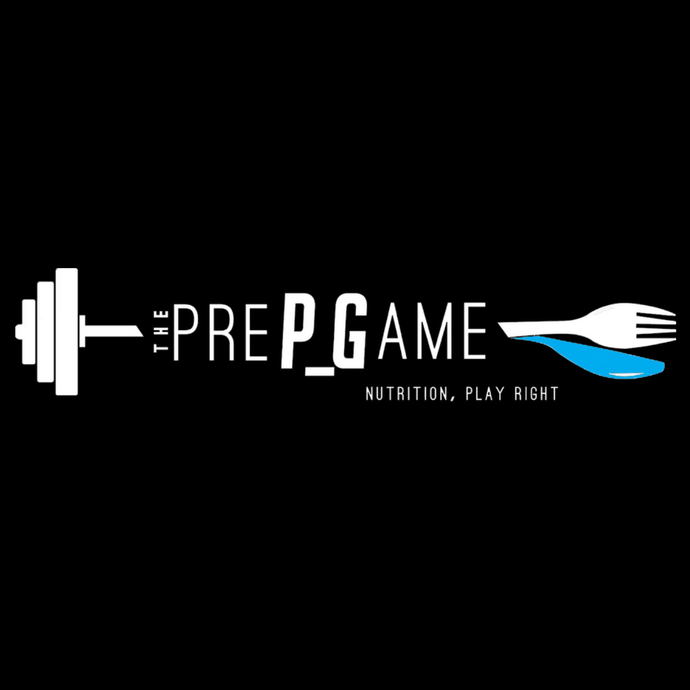I felt as though the Low Carb High Fat (LCHF) movement was taking over my life last week. Along with everyone else in the country who has an interest in nutrition, I watched ABC’s Catalyst last Thursday night. I then backed this up with the Low-Carb Downunder seminar in Melbourne on Saturday, so I was up-to-my ears in ketones and carbohydrate talk. My brain actually feels a bit overloaded and is experiencing a slight tug-of-war between my entrenched knowledge that has been accumulating over many years and this ‘new’ input that is being promoted by everyone from doctors, to scientists, to athletes and celebrity chefs.
I am writing this post to provide an insight to some of the information presented at the Low Carb Downunder seminar for those who did not attend and may be interested. There will also be the unavoidable mentions of Catalyst and associates, as well as a few interpretations of my own relating to all things LCHF. Apolgies in advance about the length of this post, and there will be Part 2 to come, just so much to think about!
I arrived at the seminar and was greeted at St Kilda Town Hall by an unusual crowd, some sporty types, some middle-aged overweight men and women, mostly older vs younger people and I think more potential ‘users’ than health professionals. There were also not as many people as I expected, from reports of the last Low Carb Downunder seminar that sounded like standing room only. I was the only dietitian there (I will get to my concerns about that later….)
So I managed to find a comfortable seat amongst the believers, without being blown away by any ketone-related bad breath. First line of the introduction by Dr Rod Tayler, anaethetist, was ‘How good was Catalyst?’ to which there was an almighty cheer. Oh no, I was starting to think that maybe I really shouldn’t be there, but once the cheering had subsided I got out from under my chair and composed myself because I really wanted to hear what all the fuss over LCHF is about. Well, the introduction was like nothing I had seen before – slide after slide of recommended reading. Actually not recommended reading, recommended purchasing! It was a book sale….right up front, no warming us into it. Not just books – there were DVD’s (including Cereal Killers of course), sponsors products, even ketone measurers! All very strange for a so-called professional conference. But I stuck it out, and I am glad I did, because things did get more interesting.
First presenter was Jimmy Moore, who also started off with visuals of his programs and books for sale, but then did get into more substantial content. Throughout the entire day I found myself intrigued and amazed one minute, then finding it very hard to take things seriously the next. The thing that seemed to get me off-side was that most of the information presented was based on anecdotes, case studies or articles written by journalists who had interviewed someone who has tried LCHF. There was not a lot of original research or content (except for A/Prof Ken Sikaris, whose great presentation I will discuss in a future post).
One thing that quite surprised me, that was also very obvious during the Catalyst program, was the non-extreme approach. Of course there was thorough discussion of the ketogenic diet, where carbohydrate intakes approaching less than 20g/day are all the rage, but there was also recognition that carbohydrates (albeit vegetable-based) can still make a valuable contribution as part of a LCHF approach. From my perspective, it seems that the LCHF approach is not as anti-carbohydrate as Paleo, and there could be the potential to sneak in some fruit or grains here or there without feeling like you have betrayed the low-car fellowship. There were no ‘carbs are poison’ or ‘sugar is toxic’ signs anywhere, and carbohydrates were in fact spoken of, at times, in a favourable light, particularly for active people. I repeatedly heard the phrases ‘there is no one-size fits all’ and ‘what works for you’. There was also an emphasis on the types of people that LCHF could work for and there was not necessarily a directive that everyone should be eating this way. For example, it was highlighted both on Catalyst and at the conference that LCHF works best for individuals whose bodies have trouble 'managing or tolerating' carbohydrate and a major focus was people who are overweight and/or have diabetes.
In fact, when Dr Zeeshan Arain, a Melbourne based doctor who works in both general practice and sports, spoke about his experiences with LCHF and athletes, he openly discussed the potential detriment of inadequate carbohydrate for an athlete who is highly metabolically active. Young male athletes with a decent amount of muscle mass perhaps? There is currently a lot of focus on athletes and LCHF, but again much of the ‘evidence’ is anecdotal. Dr Trent Stellingwerf, regarded sports nutrition researcher from Canada https://twitter.com/TStellingwerff has recently been active on Twitter summarizing the published data on fat adaptation and ketogenic diets and performance and showed the majority of studies indicate no change or reduced performance with LCHF (see my Facebook page Lisa Middleton – Advanced Sports Dieititian for the shared post, thanks to Thinking Nutrition for sharing this also). John Hawley and his team at RMIT, along with Louise Burke and other researchers have led the way in this area of sports nutrition, and it would have been great to get their perspective on Catalyst. It was a shame that line-up of interviewees on Catalyst was basically the presenter list from the Low-Carb Downunder seminar earlier this year, no bias there at all. How about a novel idea, get the world's best researchers together in the same room to present the evidence and sort it out and come to some type of consensus so we can all move on with our lives?
One thing that has frustrated me are the headlines about athletes who are using LCHF, without any description about when and how they are using it. I think if we asked for more detail, it may become obvious that LCHF is often being used as a weight loss strategy in the off-season, when peak performance is not required. In-season carbohydrate intake may be a different story. I think the potential role of LCHF for weight loss is quite obvious…..if you cut out most of the carbohydrates and sugar from your weekly intake, you automatically reduce your total calorie intake, and how much fat can you really physically eat? You eat less so you lose weight. No problem with doing this in the short-term, with appropriate guidance from a dietitian to ensure you are doing it properly. Another key message from the conference is that LCHF is not high protein, with the recommendation that protein intakes should be kept relatively low.
It was great to hear real athlete perspectives at the Low Carb Downunder seminar. Tom McDonald, a player from Melbourne Football Club, spoke of his experience with LCHF, and one of his incentives to initially reduce carbohydrates was for his digestive system. He was not trying to lose weight, in fact he reported that he has always been underweight. So he reduced his gluten and grain intake, but still maintains an estimated 100-200g carbohydrate per day, with much of this coming from sweet potato and bananas. Tom indicated his normal breakfast on training days would be bacon/sausage/eggs, occasionally with sweet potato and the night before games he would go for something like bolognaise sauce with cheese, vegetables and sweet potato. So effectively he has reduced his wheat/gluten/processed carbohydrates but does not follow extremely low carbohydrate patterns.
Other anecdotal examples followed. Brian Rabinowitz, an experienced and successful triathlete and coach, who has been doing LCHF of late and says he has never trained better and can vouch for a number of the athletes he trains who are also flying with their training and performance, having changed from a gel-fuelled race to virtually water and oil. Vicky Kuriel is a ‘LCHF dietitian’ who presented on the day (so there were in fact 2 dietitians at the conference!) and reported that her husband competes in ironman events with nothing more than water and nut butter, a significant change from his previous high-carb fuelling. Apparently he is feeling and performing better than ever (he does eat carbs usually, ~150g/day although it varies day-to-day).
I know these personal accounts are not evidence-based science, but I find them quite powerful, especially when they come from credible sources. That is another point, some of the outspoken experts on LCHF are very smart people….they are not just salespeople trying to boost their commission (although they may have a book or product on the side?). I have spoken with many professional people who I know and trust who have great faith in the LCHF approach.
Saying that, I am certainly not sold on the concept of athletes becoming fat adapted by eating more fat, allowing fat to be more readily available as the main fuel to power elite performance. Examples were presented of ultra-endurance athletes who train their bodies to burn fat as fuel and use ketones instead of carbs, but the thing with ultra-endurance is that it can be done at a steady-state pace. If you need to put on a burst of speed to pass a competitor or at the finish line, carbohydrate will provide the rapid fuel to do this. The question remains, that even though the bulk of science does not support the role of LCHF for performance, are there specific types of athletes, or individuals with a specific genetic make-up, who may benefit from the LCHF approach?
A great quote that I came across on Twitter from Professor Stuart Phillips, well-regarded sports nutrition researcher from Canada:
‘When it comes to LCHF and sport performance, I think it's important to remember that "Science is “the process of understanding the world through experimentation and observation,” whereas beliefs are “feelings that something is true.” Thus, the former represents an ideal of discovering truth that exists separate from the knower, whereas beliefs are internally held understandings filtered through one’s world view. By “unscientific belief,” something is held as generalizable fact without substantial scientific supporting evidence…" Brown et al. Adv. Nutr. 5: 563–565, 2014. So evidence trumps anecdotal experience and cognitive dissonance!’
Stuart Phillips PhD Twitter - @mackinprof
I can certainly understand why scientists and health professionals, including dietitians, are having a hard time accepting this LCHF theory, and perhaps why I was the only dietitian at the seminar. If your entire academic and working life has revolved around evidence-based practice, LCHF doesn’t quite fit as the bulk of evidence just is not there. Health professionals are trained not to base their practice on case studies or something that worked for your neighbor down the road. But I don’t think you can ignore emerging trends or turn a blind eye to what people are out there doing, even if it doesn’t fit the evidence-based practice model.
Vicky Kuriel is a dietitian who was disillusioned about dietetics, and stopped working in nutrition for a period of time due to her frustration about the lack of results for her clients with traditional methods. She is proud to be a LCHF dietitian and provided compelling reports of client success in the areas of weight loss and reduction of gastrointestinal symptoms. Vicky also emphasized that the key is to find the right mix of nutrition for your individual needs and to listen to your body, so again it is not all about the lowest carbohydrate intake possible for everybody. Vicky’s final slide said this, ‘The truth is transient in nutrition’ and her message was that we need to be open to new ideas and science.
Of course during the seminar there were a number of digs at ‘those nosy’ dietitians, although the speaker, knowing that I was the only dietitian in attendance, did kindly indicate that I was not one of those he was speaking negatively about!
I had been prepared for dietitians to be criticised at this conference, and to be honest, some of the comments were spot on. As a young dietitian working at my first professional sporting club I was known as the carbohydrate queen. My studies had taught me that carbohydrate and athletic performance, in the majority of sports, go hand-in-hand and that was my message for athletes…..carbs, carbs and more carbs. Of course I still recommend carbohydrate to athletes, but my approach these days is somewhat more balanced with greater emphasis on overall nutrient balance and individualized nutrition strategies. Another example where dietitians have a lot of work to do is in the hospital food service. Admittedly I have never worked in a hospital, other than my placement at uni nearly 20 years ago, and I don’t have full comprehension of budgetary and other contstraints that may exist, but surely something can be done to improve on the rubbish food that is currently provided in many hospital settings. During a short stay at hospital with my young son a couple of weeks ago, I was absolutely appalled at the breakfast tray that he was presented with. A sachet of puffed rice cereal, a piece of white bread with margarine and jam and a tub of apple juice. Absolutely terrible, and this is what hospitals are dishing up to our sickest members of the community whose bodies are crying out for nutrients (I am happy to be challenged on this one, as I am sure dietitians have made efforts to improve food service, with likely limitations.....please say this is the case?????).
There has been outcry from dietitians around the world about the potential risks of LCHF. Not enough fibre, not enough calcium, too much fat, not enough wholegrains….the list goes on. With plenty of vegetables, fruit, nuts and seeds, a well balanced LCHF diet provides great potential to eat lots of fibre. Especially for those following LCHF who are not following a super-low carbohydrate ketogenic plan, there is scope to eat many high fibre foods.
I can see the potential issues with calcium and this would need to be addressed for any person choosing a LCHF way of eating. For someone who does choose to eat in a LCHF style, it is important to know what you are doing and it would be advisable to seek professional advice from a dietitian who can help to ensure you are getting all of the nutrients you need.
In terms of fat intake, concerns about too much or the wrong type have mostly been driven by the impact on health and cholesterol levels, but the evidence is mounting that LCHF eating does not have a negative impact on blood cholesterol profile for everybody, and I will go into more detail about this in my next Thoughts post.
Most dietitians are anti-diet of any type, and there are warranted concerns about LCHF's restrictive nature and the potential impact on psychological well-being and a person's relationship with food. I was very pleased to hear Dr Arain mention this issue in his presentation and address body image and societal pressures to be a certain shape/size. He also mentioned body dysmorphia and disordered eating, and this highlights the fact that many people who recommend LCHF are also aware of the sensitivities associated with food, and the potential psychological impact of restriction and 'diets'. Although some LCHF advocates are not as aware....
Dr Arain also mentioned another potential negative associated with LCHF eating - the development of commercial 'low-carb' products. Similar to the proliferation of highly processed 'low-fat' products, these 'low-carb' products would not fit the 'real food' approach of LCHF but many people may use these frequently for convenience.
This leads on to probably the biggest problem that I see as a result of generalised LCHF guidelines - people don't do it properly. The message that 'high-fat' is good could be interpreted as 'well, make that double bacon with my triple-decker cheeseburger then thanks'. I can visualize this at take-away stores around the country, with this new message that saturated fat is a good guy. Not that I think this is or was the intention of the low-carb, high-fat supporters, but this is the message that is coming across to the general public loud and clear. And it creates the problem that people skip the low carb bit and just add in the fat, because fat is ‘good’.
The danger is that people choose selectively to include or omit the foods they wish. A friend of mine who is a great GP put it perfectly ‘people just take the bits and pieces from different diets that they like’, which from my perspective creates a potential risk of even greater negative effects on their health. Bacon is good, so must be good with everything, right?? Maybe on an extra piece of white toast, but is butter or margarine better with that??
Nutrition right now is confusing, but one thing that everyone does seem to agree on is that you need to find the best way of eating that works for you, based on real foods, that allows you to live and perform at your best.
In the next post I will give a summary of Associate Professor Ken Sikaris' presentation on the effect of LCHF on blood cholesterol profile, plus Ketogenic diets and Banting…. To make sure you keep up to date as new articles go up, 'Like' my Facebook page Lisa Middleton - Advanced Sports Dietitian and subscribe to my newsletter via the website home page.
This Thoughts post provides informational content only, and should not be substituted for individual nutrition prescription from a health professional. For more specific nutrition guidance and recommendations tailored to your individual needs you should speak to an Accredited Practising Dietitian.



























